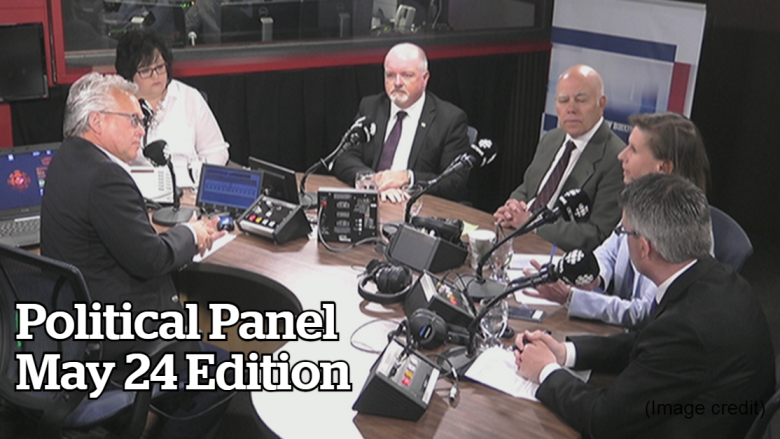Fewer question periods mean less accountability, opposition party members argue
Listen to the full CBC New Brunswick Political Panel podcast by downloading from the CBC Podcast page or subscribing to the podcast in iTunes.
Sitting fewer days in the legislature both undermines the democratic process and is symptomatic of an ineffective government, opposition parties argued during this week's Political Panel.
The subject came up as a result of recent editorials in the Telegraph Journal and Fredericton's Daily Gleaner, which pointed out that the Gallant government sat 50 fewer days than the preceding David Alward government, and 88 fewer days than the previous Liberal government led by Shawn Graham.
Asked to explain the rationale behind sitting fewer days in the legislature, cabinet minister Lisa Harris said that while her government may have spent fewer days in question period, it has spent more days in committee than the Alward government.
"There's more to work in the legislature then just having question period. There's a lot of important work passing bills and getting things done," she said.
She went on to argue that often, question period becomes more about politicians waging a war of words than getting actual work done.
"Sometimes, the barring back and forth, it's quite interesting and entertaining, but I dare say, the questions that are asked are answered, but no one's ever satisfied from either party," she said.
But Progressive Conservative MLA Bruce Fitch argued that question period is "a total different dynamic" than being in committee.
He pointed out that a government can't get voted out in committee, and that the purpose of question period is to hold the government of the day to account.
"With the reduced sitting days, you don't have that pointed question period, you don't have that opportunity to put other bills on the floor, that would again, bring the government to account," he said.
"I think it goes back to the nature of a government that's not transparent and a culture of secrecy."
Part of larger problems
Green Party Leader David Coon said he felt the real problem is that due to strict party discipline, MLAs aren't able to vote as they like, and only toe the party line.
"How can the legislative branch hold the executive branch to account if the individual backbenchers are bound on every vote to vote the same way the leader wants them to vote? That means we're ineffective," he said.
"You can imagine the Liberals saying, what's the point? This is just a rubber stamp. We've got the majority. Why do we need all these sitting days, because every time we're going to win?"
People's Alliance Leader Kris Austin said eliminating sitting days reduces the opportunites to hold the government accountable, adding that it seemed to be part of a "larger problem" in provincial politics.
"There seems to have been a shift over time where politics and government today seems to be more about perception and public relations than the actual grit of democratic process and the legislature where you actually debate hard policies," he said.
NDP Leader Jennifer McKenzie also said she felt having fewer sitting days was symptomatic of a government that's "not properly governed."
"The number of days is just a symptom of the overall problem that they're not doing their jobs," she said.



